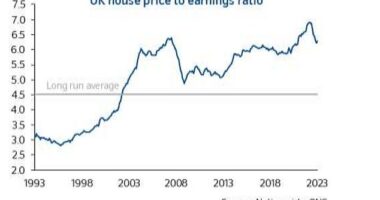HOUSEHOLDS are set to be hit with huge price hikes across their broadband, mobile and energy bills this year.
We explain seven ways to slash costs and fight back against the increases.
Council tax bills and the price of your TV licence are also going up.
It comes as the coronavirus crisis continues to squeeze at the purse strings of families across the UK.
Collectively, you could save hundreds of pounds and avoid the hikes by following these tips.
Netflix and Disney+ – up to £24 price increase
Netflix and Disney+ have both confirmed price hikes of up to £24 per year for some customers.
If you’re a Netflix user, its standard price plan has risen from £8.99 a month to £9.99 a month, working out as a £12 hike per year.
Meanwhile, its premium price plan has increased from £11.99 to £13.99 a month, or an extra £24 a year.
How Netflix users can cut costs
IF you want to stick with your Netflix account, we explain a few ways to cut costs.
- Share your account and split the bill
Netflix lets you share your plan with people who live in the same household, so it’s usually not worth paying for multiple subscriptions.
A standard plan lets user stream shows on two devices at the same time, while a premium pass allows streaming on up to four.
Splitting the cost of a premium plan between four of you would cost £3.50 each – saving you £2.49 each when compared to a personal basic plan.
- Get the right plan for you
There are three types of plans available – the more expensive the package, the more screens you can simultaneously watch TV on, the better the quality and the more devices you can download shows to.
If you don’t share your account and aren’t bothered about the picture quality then switching to a basic plan could save you up to £96 a year.
- Watch some shows for free without an account
Netflix ditched its free trial option last year, but viewers can watch some of its shows and movies without an account on its website.
For the shows, Netflix is currently only providing the first episode – after that, you’ll need to pick a subscription plan to keep watching.
But the feature-length films are available in full without any adverts or interruptions.
- Pause or cancel your account
There’s no sign-up fee to Netflix so cancelling your subscription for the months that you don’t watch it could save you cash.
Unlike traditional TV stations, Netflix typically drops entire series in one go, which means you can binge watch your favourite shows.
By only signing up to the service for one month and cancelling your subscription for the remaining 11 months of the year until a new season is released, then you could save up to £154 a year.
Or if you’re a new Disney+ subscriber, prices have this week been raised to £5.99 to £7.99, an increase of £24 over the year.
Annual subscribers used to pay £59.99 a year, but this has now gone up to £79.90, so you’re paying £19.91 more.
Existing Disney+ users won’t be hit by the price increases until August 23, 2021.
How to save £167.88: If you’re paying for either service, but you don’t use them, you can cancel for free to save money.
This would save you £167.88 over the course of the year if you’re currently on the most expensive Netflix subscription.
Or for Disney+ users, you could save £95.88 over the year if you’re a monthly subscriber.
If you don’t want to get rid of Netflix or Disney+, it could be worth seeing if anyone in your household wants to split the cost of the bill.
With Netflix, you can only watch one screen at a time with its basic £5.99 package.
However, up to two people can watch on separate screens with its £9.99 subscription, going up to four people for its priciest £13.99 package.
With Disney+ you can stream shows on up to four devices at any one time.
You can also downgrade your Netflix to a cheaper package if you don’t have anyone to split your bill with.
British Gas, Scottish Energy, EDF and more – up to £97 price increase
Millions of households are set to see their energy bills increase from April after the Big Six suppliers confirmed price hikes.
The Sun has reported on British Gas upping bills by £97, while Scottish Power, EDF Energy and EOn are hiking prices by £96.
NPower and SSE are also increasing prices by £96.
The higher bills from Big Six suppliers are a result of Ofgem announcing it would up its price cap by £96.
The regulator is increasing the price cap from £1,042 per year to £1,138 for the six month period from 1 April.
How to save on your energy bills
SWITCHING energy providers can sound like a hassle – but fortunately it’s pretty straight forward to change supplier – and save lots of cash.
Shop around – If you’re on an SVT deal you are likely throwing away more than £300 a year. Use a comparion site such as MoneySuperMarket.com, uSwitch or EnergyHelpline.com to see what deals are available to you.
The cheapest deals are usually found online and are fixed deals – meaning you’ll pay a fixed amount usually for 12 months.
Switch – When you’ve found one, all you have to do is contact the new supplier.
It helps to have the following information – which you can find on your bill – to hand to give the new supplier.
- Your postcode
- Name of your existing supplier
- Name of your existing deal and how much you pay
- An up-to-date meter reading
It will then notify your current supplier and begin the switch.
It should take no longer than three weeks to complete the switch and your supply won’t be interrupted in that time.
How to save £215: Not happy with the price hikes? Use a comparison site such as MoneySuperMarket.com, uSwitch or EnergyHelpline.com to see what deals are available to you.
But check you’re not still in contract with your current supplier to avoid expensive exit fees.
Martin Lewis this week rounded up the top three cheapest fixed deals currently available as part of his weekly newsletter.
This included fixed tariffs from So Energy and Pure Planet, where it’s estimated you could save £215 on average.
The cheapest deals are often fixed, which means you’ll pay a set amount per kilowatt hour – the unit used to measure energy – usually for one year or more.
As the price that is fixed is on the unit, your bills will still go up if you start using more power.
Sky, Virgin Media and BT – up to £72 price increase
The majority of households in the UK are relying on the internet more than ever as we continue to work from home.
But you’ll feel the pinch of this even more come April, as some of the largest broadband providers increase their prices.
Sky is upping bills by up to £72 per year for some customers, depending on what type of products you have.
Meanwhile, Virgin Media is hiking prices by £44 per year for some households, and BT prices are going up by £24.
How to save on broadband and TV bills
HERE’S how to save money on your broadband and TV bills:
Audit your subscriptions
If you’ve got multiple subscriptions to various on-demand services, such as Amazon Prime, Netflix, and Sky consider whether you need them all.
Could you even just get by with Freeview, which couldn’t cost you anything extra each month for TV.
Also make sure you’re not paying for Netflix twice via Sky and directly.
Haggle for a discount
If you want to stay with your provider, check prices elsewhere to set a benchmark and then call its customer services and threaten to leave unless it price matches or lowers your bill.
Switch and save
If you don’t want to stay with your current provider check if you can cancel your contract penalty free and switch to a cheaper provider.
A comparison site, such as BroadbandChoices or Uswitch, will help you find the best deal for free.
How to save £208.80: If you don’t want to leave your internet provider, you could try haggling for a lower price.
While this isn’t guaranteed to lower your bills, it doesn’t hurt to see what they could offer you.
But before you call them up, you should compare prices to see what other providers can offer you.
This way, you can go to your current provider with this lower price to see if they can match it.
Once you’ve found the best price, call up your current broadband provider – you can find their customer service line on their official webpage – and tell them you’re not happy about their price increases.
Explain that you’ve found a lower price elsewhere, and see if they can do better.
If they can’t, and you’re out of contract, it is then up to you to decide whether you want to switch.
When we compared prices today using one London postcode with Uswitch, the cheapest broadband deal on speeds between 30Mb and 60Mb was from POP Telecom.
This deal costs £20.50 per month for speeds of 38Mb on an 18-month contract.
The most expensive in our search was from Direct Save Telecom, which costs £34.95 for speeds of 35Mb on a rolling contract.
As an example, the price difference between these two packages is £14.45 per month, or £208.80 over the year.
Before you switch, check if you’re still in contract and if you need to pay any exit fees.
You should also take into account how fast of a connection you need, and if you can cut back costs by going for a slightly slower speed.
Three Mobile, Vodafone and EE – up to £45 price increase
Millions of Three Mobile and Vodafone customers will see their bills rise by up to £45 a year from April.
EE, which is owned by BT, is also upping prices by £24 per year.
How to save £252: Again, if you don’t want to switch provider, it could be worth haggling to see if you can get a better deal out of them.
If they can’t do better, and you want to switch to a cheaper deal, the best options are usually SIM-only.
But make sure you pick a package that is right for you, rather than just the cheapest.
You should take into consideration how many minutes, data and texts you currently use, otherwise you could end up forking out extra for expensive add-ons.
For example, if you’re a heavy internet user it’s worth finding a deal that accommodates this, or if you make lots of calls, find the best price for a package with lots of minutes.
How much you’re currently paying depends on your individual phone tariff – you should see a breakdown of everything included in your deal in your online account.
As an example, we searched for iPhone 12 deals on MoneySupermarket and found the cheapest contract package with unlimited minutes, texts and data costs £37 per month from ID Mobile.
The upfront cost is £99, and the contract is for 24 months – so you’re paying £444 over 12 months, not including the upfront cost for the handset, or £888 over the 24 months.
But the cheapest SIM-only deal costs just £16 from Three Mobile – this comes to £192 over 12 months.
Again, you can get cheaper deals if you can get buy with less minutes, calls and texts.
Council tax – up to 5% increase
Council tax bills are set to increase by as much as 5% from April, adding £100 to bills for millions of families.
The exact amount your bill could go up by depends on your local authority, so check your bill carefully when it arrives.
But there is a chance you could lower your bills by hundreds of pounds if you find you’re in the wrong council tax band.
You may also be owed thousands of pounds back from overpayments.
What help is available if you’re struggling to pay your council tax?
IF you are over the age of 18 and either own or rent your own home, you must pay council tax.
But there is help available if you’re struggling to pay your bill.
You get 25% off if:
You live on your own.
You also qualify for this discount if there is one adult and one student, or one adult and one person who is classed as severely mentally impaired.
You get 50% off if:
When working out how many people live in a property, some people are not counted – they are called “disregarded people”.
You can get a 50% discount if everyone in your home is “disregarded” from paying council tax.
For example, if there is a live-in carer and one person who is severely mentally impaired.
Check out the Citizens Advicewebsite for a full list.
You get 100% off if:
You’re living in an all-student household, or if you have a severe mental impairment and live alone or with a student.
A full reduction is also possible in households where someone under 18 is living with someone who is severely mentally impaired.
Claim benefits?
You could be entitled to a 100% reduction on your council tax bill if you receive certain benefits.
Check with your local council to see what help you can offer.
Own a second home?
You’ll usually have to pay council tax on an empty home.
But councils can give furnished second homes or holiday homes a discount of up to 50%.
Talk to your local authority to see what help they can offer.
Is there help during the coronavirus crisis?
Struggling households can also get their council tax bills reduced by up to £150 this year due to the coronavirus crisis.
The council tax hardship fund, which was first announced in March, is available to working-age people who get council tax support.
This is a benefit to help people who are on a low income or claiming certain benefits to pay their council tax bill.
Can I pause my payments?
A new scheme is launching this year that will see struggling households pause their payments for 60 days.
First announced in June 2019, the breathing space scheme will protect hard-up Brits from bailiffs and prosecution for two months.
The scheme won’t come into force until May 4, 2021.
How to save £100s: You’ll need to do your research first before challenging your council tax band, and it’s not guaranteed that you’ll end up lowering your bills.
In fact, you could end up paying more if you’re found to be in too low of a banding – and this would also increase bills for your neighbours.
If you’re considering making a challenge, first check what council tax band your neighbours are on to see if it matches your band.
Use the GOV.uk website to do this for houses in England, or the Scottish Assessors Association for properties in Scotland.
You should try and compare homes that are similar in size and value, in order to get an accurate comparison.
If you find your property is in a higher council tax band compared to your neighbours, you might have a successful challenge.
But again, it could just be that the entire street is in the wrong band.
Finally, you’ll also need to work out how much your property was worth in 1991, as this is when council tax was launched by the government.
MoneySavingExpert has a free calculator tool to help you do this, as well as a table on what band you should have been put in.
If you want to go ahead with a challenge, you can contact the Valuation Office Agency (VOA) in England and Wales or the Scottish Assessors Association (SAA) in Scotland.
TV licence – £1.50 increase
The TV licence fee is going up from £157.50 to £159 from April 1.
But millions of pensioners who are aged 75 and over and claim pension credit are entitled to a free colour licence.
This means they don’t need to pay at all, and it applies to all TVs in your household.
How to save £159: Under previous rules, TV licences were free to everyone over the age of 75, regardless of it they claimed pension credit.
But the BBC confirmed households would only be eligible for the freebie if they claim the benefit as well, as of August 2020.
If you qualify for a free licence, you can apply for one on the TV Licensing website.
There are also ways to watch TV for free legally without having a TV licence.
For example you can watch catch-up TV and on demand previews through services including ITV Player, All 4, My5, BT Vision/BT TV, Virgin Media, Sky Go, Now TV, Apple TV, Chromecast, Roku and Amazon Fire TV.
You can also watch video clips that aren’t live through YouTube.
You can’t watch or download programmes on BBC iPlayer without a TV licence.
Water bills – falling by £2
Water prices aren’t actually increasing this year, with the average price set to reduce from £410 to £408, a saving of £2.
But if you claim benefits, or you’re struggling with cash, we explain how you could still save money.
How to save £270: Help for families on benefits comes from the WaterSure scheme.
The idea of WaterSure is it stops customers cutting back on how much water they use because they are worried about how they will pay their bill.
Bills are typically capped at the average amount for your supplier, so the amount you could save will vary.
The Consumer Council for Water (CCW) estimates that households save around £270 on average through WaterSure.
But the amount your bills are reduced by does vary in reality from as little as £10 to as much as £400 a year.
If you live in England, you need to apply for the scheme directly from your water supplier.
Alternatively, if you don’t claim benefits but you’re struggling to keep up with your bills, talk to your supplier as soon as possible.
They may be able to offer you a more affordable payment plan to help spread your costs.
We’ve rounded up 16 tips to slash your supermarket shopping bill by hundreds of pounds a year.
And here are eight Martin Lewis money-saving tips that could save you £9,243/
How to get up to £10 free Nectar card points for free.
This post first appeared on thesun.co.uk


















